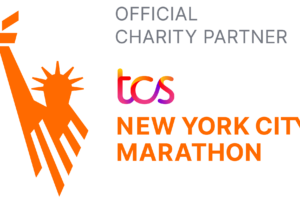Article by Laura Earl, RN, BSN, CACP
If you have been diagnosed with a blood clot, a medication named warfarin (Coumadin) may be prescribed as part of your treatment to prevent further blood clots. You may need to take warfarin (Coumadin) for a few weeks, months, or the rest of your life. While taking warfarin (Coumadin), there are a few things about vitamin K you will need to know.
What is vitamin K?
Vitamin K is a naturally occurring vitamin. Vitamin K is primarily found in leafy green vegetables such as spinach, broccoli, and lettuce, and enters your body when you eat these foods. Vitamin K is produced by the bacteria in your intestines, and it is also in vitamin and nutritional supplements. Your body uses vitamin K to produce some of the clotting factors that helps blood clot.
How does Warfarin (Coumadin) work?
Warfarin (Coumadin) works by interfering with how your body uses vitamin K. The metabolism of warfarin (Coumadin), vitamin K, and vitamin K dependent clotting factors takes place in your liver. Warfarin (Coumadin) prevents the production of vitamin K dependent clotting factors. As a result, clotting occurs at a much slower rate. One good way to think about vitamin K and its importance while taking warfarin (Coumadin) is that you need to maintain a balance between the amount of vitamin K in your body and the amount of warfarin (Coumadin) prescribed by your healthcare provider.
What do I need to know about Vitamin K, if I am taking warfarin (Coumadin)?
Changes in the amount of vitamin K in the diet can alter the metabolism of warfarin (Coumadin ®). However, vitamin K does not influence the action of other blood thinners, such as heparin or low molecular weight heparins (Lovenox ®. Fragmin ®, or Innohep ®).
You should aim to keep the amount of vitamin K in your diet consistent. For example, if you normally eat two servings per day of food that is high in vitamin K content, you should continue this pattern every day. If you do not normally eat foods that are high in vitamin K, do not suddenly eat a large amount of them.
There are certain things about vitamin K that you cannot control. For instance, some medications and illnesses (intestinal diseases and/or infections) can lower the amount of vitamin K in your body or change how your liver metabolizes your warfarin.
Can vitamin K affect my INR?
Yes, your INR refers to the international normalized ratio test, a standardized way to measure how your blood is clotting. The lower your INR, the more quickly the blood clots or the “thicker” the blood. The higher your INR, the longer it takes the blood to clot or the “thinner” the blood, putting you at risk for bleeding problems. With an increase in vitamin K , your INR level may drop. Conversely, a decrease in vitamin K intake may increase the INR. Other things, like medications, antibiotics, and herbal products may also influence your INR.
What should I tell my anticoagulation healthcare provider?
Any time your vitamin K intake changes, it is important to notify your anticoagulation healthcare provider. Some of the circumstances that may apply include if you:
- Start taking a multiple vitamin or other vitamin supplement that contains vitamin K (such as Viactiv ®).
- Use a nutritional supplement such as Boost ®, Ensure ®, Glucerna ® or SlimFast ® – shakes or nutritional bars.
- Increase or decrease the amount of leafy green vegetables you are eating (refer to the USDA website at http://www.nal.usda.gov/fnic/foodcomp/Data/Other/pt104.pdf)
- Start or stop drinking V8 ® juice.
- Develop an illness, including a respiratory infection or gastrointestinal flu that changes how well you are eating. Have lifestyle changes or emotional stress such as illness, the death of a family member, travel, or even seemingly simple things like moving or remodeling your home
You do not have to avoid foods or other products that are high in vitamin K; these foods have many other vitamins and minerals that are part of a healthy diet. The most important thing to remember about vitamin K intake is being consistent as much as possible and communicating any changes that may occur to your anticoagulation healthcare provider.
Disclaimer
The National Blood Clot Alliance (NBCA) and its Medical and Scientific Advisory Board (MASAB) do not endorse or recommend any commercial products, processes, or services. The views and opinions of authors expressed on the NBCA or MASAB websites or in NBCA or MASAB written materials do not necessarily state or reflect those of NBCA or MASAB, and they may not be used for advertising or product endorsement purposes.
It is not the intention of NBCA or MASAB to provide specific medical advice, but rather to provide users with information to better understand their health and their diagnosed disorders. Specific medical advice will not be provided and both NBCA and MASAB urge you to consult with a qualified physician for diagnosis and for answers to your personal questions.
Posted November 24, 2008





